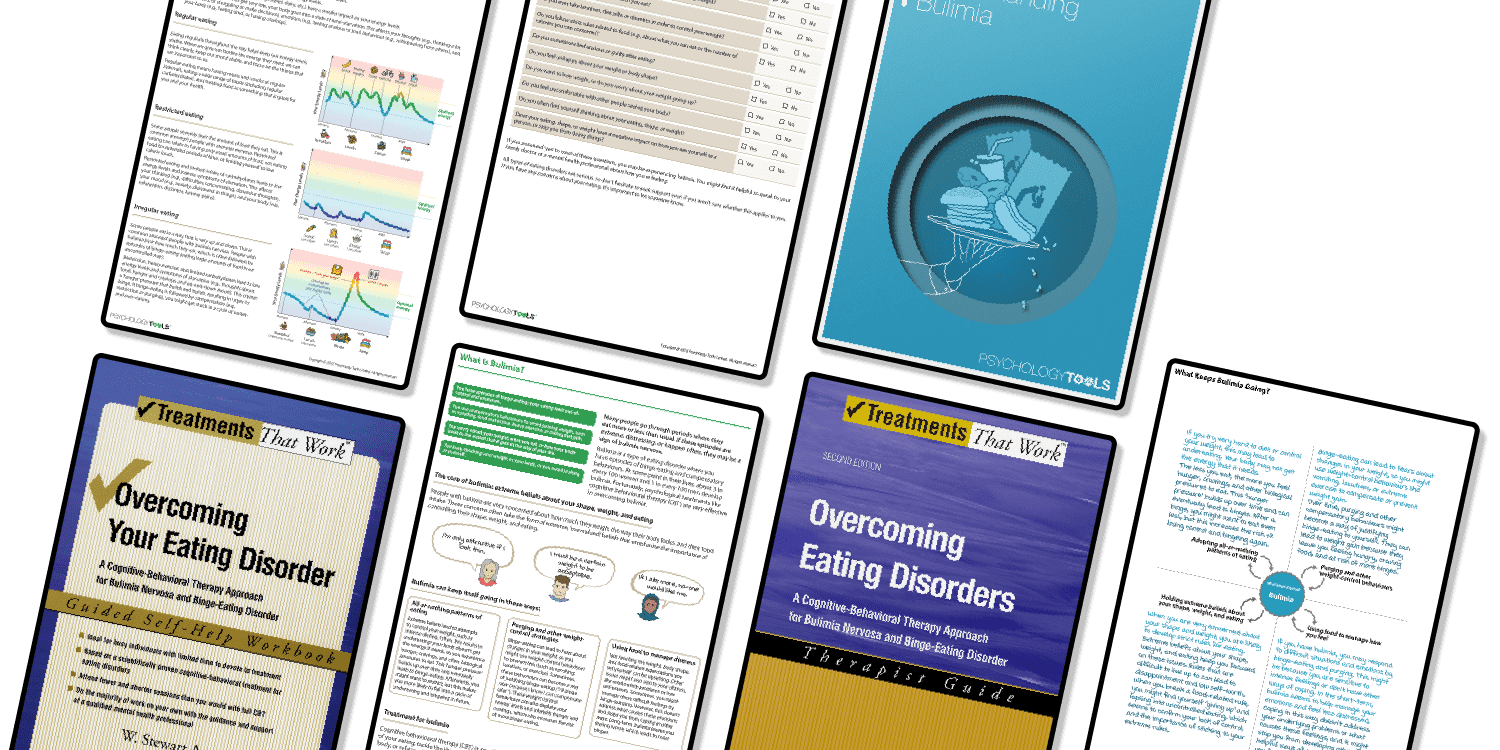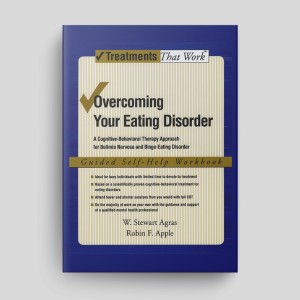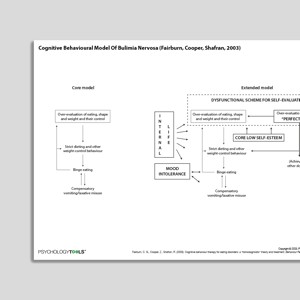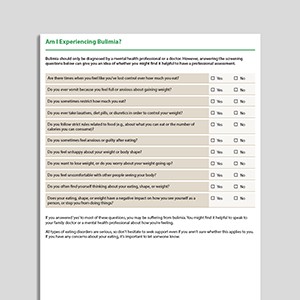Bulimia

15 of 15 resources
Insufficient Self-Control
Schema therapy posits that psychological difficulties stem from early maladaptive schemas (EMS) and clients’ characteristic responses to them, refer ...
https://www.psychologytools.com/resource/insufficient-self-control
Mistrust/Abuse
Schema therapy posits that psychological difficulties stem from early maladaptive schemas (EMS) and clients’ characteristic responses to them, refer ...
https://www.psychologytools.com/resource/mistrust-abuse
Emotional Inhibition
Schema therapy posits that psychological difficulties stem from early maladaptive schemas (EMS) and clients’ characteristic responses to them, refer ...
https://www.psychologytools.com/resource/emotional-inhibition
Enmeshment
Schema therapy posits that psychological difficulties stem from early maladaptive schemas (EMS) and clients’ characteristic responses to them, refer ...
https://www.psychologytools.com/resource/enmeshment
Pessimism
Schema therapy posits that psychological difficulties stem from early maladaptive schemas (EMS) and clients’ characteristic responses to them, refer ...
https://www.psychologytools.com/resource/pessimism
Overcoming Your Eating Disorder: Workbook
Overcoming Eating Disorders comes in two volumes. This page is for the Client Workbook. Click on the following link to access the accompanying Therapi ...
https://www.psychologytools.com/resource/overcoming-your-eating-disorder-workbook
Overcoming Eating Disorders (Second Edition): Therapist Guide
Overcoming Eating Disorders comes in two volumes. This page is for the Therapist Guide. Click on the following link to access the Client Workbook.&nbs ...
https://www.psychologytools.com/resource/overcoming-eating-disorders-therapist-guide
Eating And Your Energy Levels
The Eating and Your Energy Levels handout provides an overview of the relationship between food intake and energy levels. It graphically illustrates h ...
https://www.psychologytools.com/resource/eating-and-your-energy-levels
Transdiagnostic Cognitive Behavioral Model Of Eating Disorders (Fairburn, Cooper, Shafran, 2003)
Fairburn, Cooper & Shafran (2003) argue that eating disorders such as anorexia and bulimia share common maintenance mechanisms despite difference ...
https://www.psychologytools.com/resource/transdiagnostic-cognitive-behavioral-model-of-eating-disorders-fairburn-cooper-shafran-2003
What Keeps Bulimia Going?
The “What Keeps It Going?” series is a set of one-page diagrams explaining how common mental health conditions are maintained. Friendly and concis ...
https://www.psychologytools.com/resource/what-keeps-bulimia-going
Understanding Bulimia
Our ‘Understanding…’ series is a collection of psychoeducation guides for common mental health conditions. Friendly and explanatory, they are co ...
https://www.psychologytools.com/resource/understanding-bulimia
Cognitive Behavioral Model Of Bulimia Nervosa (Fairburn, Cooper, Shafran, 2003)
Bulimia nervosa is an eating disorder characterized by binge eating followed by purging. Among young women, the point prevalence of bulimia is about 1 ...
https://www.psychologytools.com/resource/cognitive-behavioral-model-of-bulimia-nervosa-fairburn-cooper-shafran-2003
What Is Bulimia?
Our ‘What Is … ?’ series is a collection of one-page information handouts for common mental health conditions. Friendly and explanatory, handout ...
https://www.psychologytools.com/resource/what-is-bulimia
Am I Experiencing Bulimia?
Bulimia (bulimia nervosa) is a condition characterized by recurrent episodes of binge eating, accompanied by repeated inappropriate compensatory behav ...
https://www.psychologytools.com/resource/am-i-experiencing-bulimia
Recognizing Bulimia Nervosa
Bulimia Nervosa is characterized by frequent and recurrent episodes of binge eating, which are defined as a period of time in which the individual exp ...
https://www.psychologytools.com/resource/recognizing-bulimia-nervosa
Links to external resources
Psychology Tools makes every effort to check external links and review their content. However, we are not responsible for the quality or content of external links and cannot guarantee that these links will work all of the time.
Assessment
-
Eating Attitudes Test 26 (EAT-26)
| Garner, Olmsted, Bohr, Garfinkel | 1982
- Test (PDF)
- Test (Word)
- Scoring and interpretation
- Website link
- Reference Garner et al. (1982). The Eating Attitudes Test: Psychometric features and clinical correlates. Psychological Medicine, 12, 871-878
-
Eating Disorder Examination (EDE)
| Fairburn, Cooper, O’Connor | 2014
- Interview
- Questionnaire (EDE-Q)
- Questionnaire for Adolescents (EDE-A)
- Reference Fairburn, C. G., Cooper, Z., & O’Connor, M. (1993). The eating disorder examination. International Journal of Eating Disorders, 6, 1-8.
Guides and workbooks
- Taming the hungry bear: Your way to recover from chaotic overeating | Kate Williams
Information (Professional)
- Topics to cover when assessing the eating problem | Fairburn | 2008
Self-Help Programmes
-
Break Free From ED (Workbook)
| Centre For Clinical Interventions | 2022
- Module 1: What Are Eating Disorders?
- Module 2: What Keeps Eating Disorders Going?
- Module 3: Understanding The Number On The Scale
- Module 4: Self-Monitoring
- Module 5: Food And Energy
- Module 6: Eating For Recovery - Part 1
- Module 6: Eating For Recovery - Part 2
- Module 8: Binge Eating
- Module 9: Purging
- Module 10: Driven Exercise
- Module 11: Body Image 1 - Body Checking
- Module 12: Body Image 2 - Body Avoidance
- Module 13: Core Beliefs
- Module 14: Maintaining Your Gains And Dealing With Setbacks
- Appendix: Getting Educated About Eating Disorders
Treatment Guide
- Eating Disorders: Recognition And Treatment (NICE Guideline) | NICE | 2020
Video
- Eating disorders from the inside out | Dr Laura Hill | 2012














